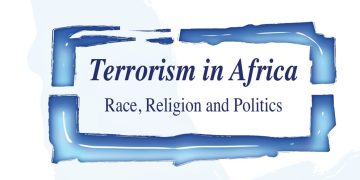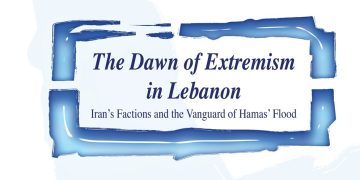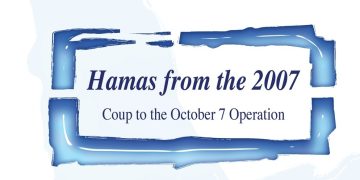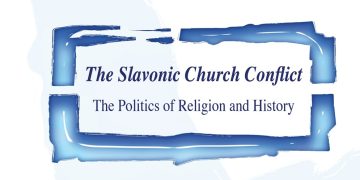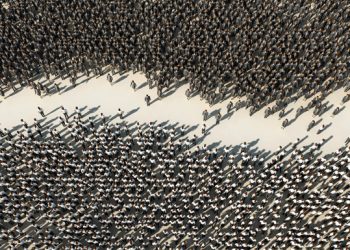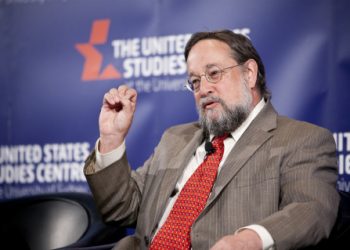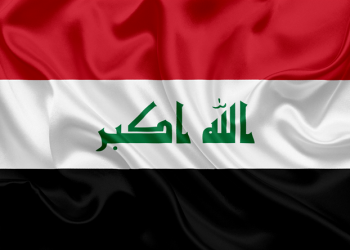by Adam Garfinkle
Love breaths its deepest within us at quiet times of dim light and easy breezes, moments of gentle touches amid aromas of spice and strong tea. But heartbreak en masse prefers flashes of brightness and thunder amid odors of gunsmoke and superheated concrete dust. So it is in this early winter of heartbreak in Aleppo and Mosul, where children of Abraham shudder in tears and fear.
I am not an Arab. I am a Jew who lives in America, far from this convolution of madness and pain, of panicked confusion and desperate survival-mandated numbness. But if my bones and flesh repose in America, my spirit and heart are never far from the sources of whatever sparks of holiness my life detects. And those sources recall almond blossoms and thistle thorns, shank bones of lambs and sweet sumac, sand and stones more numerous, it seems, than the stars of heaven—a place of friends and family today no less, if differently, than three thousand years ago.
So in the papers and on the radio here they say Aleppo has fallen, and so soon will Mosul. We in the West think we know the good guys from the bad—so one fall is tragedy and the other redemption. It is often spoken of here as would be a sporting match. But what ordinary people in Mosul experience, hammered between fanatics who shoot them if they blink or smile and alien militias who pretend to care about them, is not suited for sport. The raw cynicism and desperation of Aleppo has been too complicated for most readers here to be bothered with or for most journalists to parse—besides, it has dragged on long past the point of novelty and hence interest.
But you must remember that, for all that has happened during the past two decades, most Americans still cannot distinguish between a description for an ethno-linguistic group (Arab, for example) and for a sectarian affiliation (Muslim, for example)—let alone the difference between Arab, Persian, Pashtun, Baluch and Berber, or between Sunni and Shi’a, Ismaili and Alawi, Ahmadiya and Sufi. So it was that not long ago the accused Omar Mateen, a displaced Pashtun deranged by the wrath of an exiled father in Orlando, Florida, magically became an “Arab” in the newspapers here. It is so hard for us to detect love or heartbreak in people who insist on blurring themselves so….
You Arabs must forgive us, for we have troubles too. Most of us misapprehend what they really are, yes; but this is an inadmissible possibility among a people whose second-natured arrogance remains mostly undaunted by its accumulating failures.
Imagine the scene some years ago when I sat as an unworthy attendee at a small dinner at the residence of the German Ambassador in Washington, the occasion the visit of former Premier Helmut Schmidt. As the elderly Schmidt chain-smoked his cigarettes, the conversation meandered around to the Middle East. It then improbably launched into abstract space, awkwardly alighting on a guest’s insistence that it was high time the Arabs learned to distinguish theology from philosophy, so that the business of secularizing political life could finally break into the Levantine light of day.
I was in mid-sup of soup when I heard this, and almost choked as visions of Ibn Sina, Ibn Rushd, Maimonides, and others from the 10th, 11th, and 12th centuries flooded into my mind. Muslims and Jews of that era wrestled profoundly with the relationship between faith and reason, and so with human nature itself, at a time when medieval Christians still embraced trial by ordeal and, in a French custom that continued into the 19th century, joyously burned cats alive for fun in seasonal rituals. I gazed thereafter upon the dinner table with the unspoken conviction that hubris would one day demand its due.
Centuries after medieval Muslim and Jewish thinkers had arrived at a nuanced way of approaching the puzzle of human nature, still highly esteemed 16th and 17th century European savants were mumbling about it like egocentric adolescents. So Thomas Hobbes insisted that man in a state of nature would sink into a war of all against all, leading to a life “nasty, brutish, and short.” But Jean-Jacques Rousseau soon insisted contrarily that the man who first identified a piece of land, fenced it, and declared it his own sowed the root of all evil by inventing private property and the sin of acquisitiveness, for mankind in a state of nature sans civilization was nobly equal, happy, prosperous, and peaceful.
Ever since, it seems, Western philosophers have shouted at one another about this, some insisting on the dominant competitive aspects of human nature to the exclusion of all else, and others on the cooperative aspects—both arguments half right and hence wholly wrong. Ancient thinkers from Near Eastern climes knew that both individual and social human nature is a wondrous amalgam of the competitive and the cooperative. Faith and reason, emotion and rationality, love and heartbreak—these are ever our twinned and entwined companion.
This uninvited companion can wear one down, especially at times like these when heartbreak wells up as a flood to drown our very souls. But here, too, hoary counsel may comfort us, counsel to which Benjamin Disraeli pointed some century and a half ago when assailed by an anti-Semite in the House of Commons: “Yes, I am a Jew. And when the ancestors of the right honorable gentlemen were brutal savages in an unknown island, mine were priests in the temple of Solomon.” Yes it was Solomon, the preacher of Ecclesiastes, who remonstrated, “vanity of vanities, all is vanity and a striving after wind,” yet who, even in the depths of distress, never forsook God, never utterly lost his emotional balance, and so never shed the shield of hope.
These are difficult days, as we look upon the ruins of Aleppo and Mosul and mourn the multitudes of the innocent slain even as the blood has yet to dry. We must bear them knowing that the heartbroken will know love again.
Adam Garfinkle is Editor of The American Interest.


